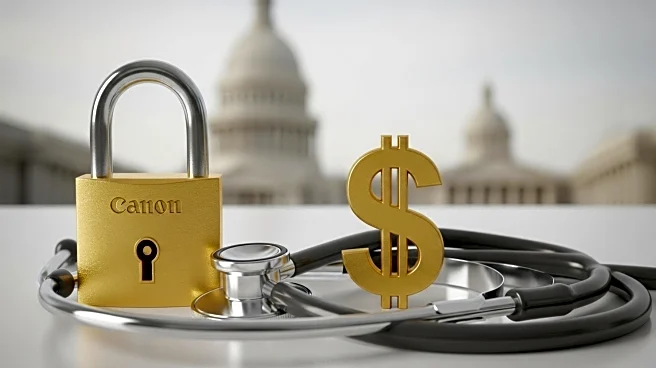What's Happening?
The federal government shutdown has entered its second week, with no clear resolution in sight. The shutdown is primarily driven by a stalemate over health care subsidies, which are set to expire at the end of the year. President Trump has threatened to fire federal workers and withhold back pay, adding to the tension. While public negotiations are stalled, private discussions among lawmakers are ongoing. The shutdown has led to missed paychecks for military personnel and federal employees, flight delays, and disruptions to federal programs. Two competing bills from Republicans and Democrats have failed in the Senate, exacerbating the situation.
Why It's Important?
The shutdown has significant implications for millions of Americans who rely on health care subsidies provided under the Affordable Care Act. The expiration of these subsidies could lead to increased health insurance costs, affecting ACA enrollment and coverage. The political standoff is also impacting federal workers and the broader economy, with potential long-term effects on public trust in government. The situation is a precursor to the 2026 midterm elections, with both parties using the shutdown to rally support and frame their political narratives.
What's Next?
Negotiations are expected to continue behind the scenes, with some lawmakers proposing temporary solutions to extend subsidies. President Trump has indicated a willingness to negotiate, but insists on reopening the government first. The outcome of these discussions could shape the political landscape leading up to the midterm elections. Stakeholders, including union leaders and political figures, are likely to increase pressure on Congress to resolve the impasse.
Beyond the Headlines
The shutdown highlights deeper issues within U.S. politics, including the ongoing debate over health care reform and the use of federal workers as leverage in political disputes. The situation raises ethical questions about the treatment of government employees and the prioritization of political agendas over public welfare.










